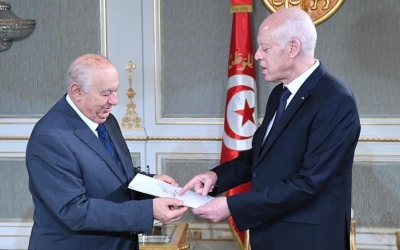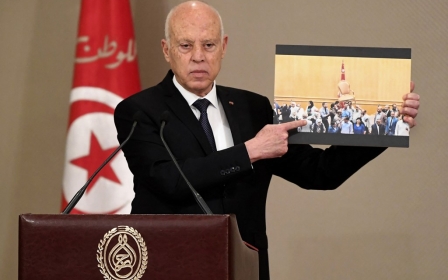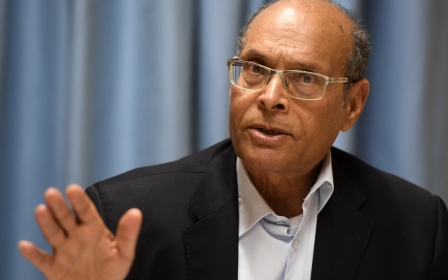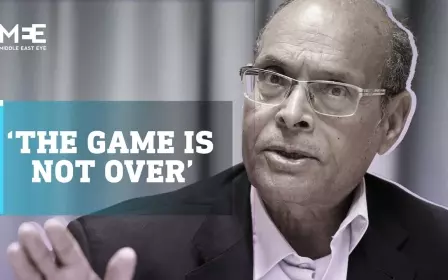Tunisia jurist who drafted new constitution withdraws support

The head of the panel that oversaw the drafting of Tunisia’s new constitution has withdrawn support for it, warning that it had changed into a text that could lead to a "dictatorial regime".
Sadeq Belaid, head of the committee that drafted the new charter submitted to President Kais Saied, distanced himself from the constitution on Sunday.
"It has nothing to do with the text we drafted and submitted to the president," he said, as quoted by Assabah newspaper.
The draft constitution would bring most political power under Saied, who has ruled by decree since July last year, giving him ultimate authority over the government and judiciary.
Previously, political power was more directly exercised by parliament, which took the lead role in appointing the government and approving legislation.
New MEE newsletter: Jerusalem Dispatch
Sign up to get the latest insights and analysis on Israel-Palestine, alongside Turkey Unpacked and other MEE newsletters
Under the proposed new constitution, the government would answer to the president and not to parliament, though the chamber could withdraw confidence from the government with a two-thirds majority.
Saied would be allowed to present draft laws, have sole responsibility for proposing treaties and drafting state budgets, appoint or remove government ministers and appoint judges.
Voters will be asked to approve the constitution in a 25 July referendum.
'Considerable shortcomings'
Belaid said the document "contains risks and considerable shortcomings," and that one particular article carries an "imminent danger" because it would give the president "very wide powers... that could lead to a dictatorial regime".
"That is why, as head of the national constitution committee... I declare, regretfully and in true conscience... that the committee has nothing to do with the document," he said.
Saied has ruled by decree since he brushed aside parliament and the democratic 2014 constitution in a step his opponents have called a coup. Experts have warned that the new proposed charter, published on 30 June, will permanently enshrine his expanded powers.
"If adopted, the constitution would give the president unrestricted, unchecked powers, and would drastically limit the competencies of other branches of the state, including the parliament and the judiciary," Said Benarbia, MENA regional director at the Geneva-based International Commission of Jurists, told Middle East Eye earlier this week.
"The drafting process was devoid of any legal basis, democratic legitimacy, inclusivity, accountability and transparency - behind closed doors, an illegitimate committee drafted a constitution that does not reflect the views of all Tunisians."
On Saturday, the head of the powerful UGTT union, which has more than 1 million members, said the new constitution could threaten democracy.
Middle East Eye delivers independent and unrivalled coverage and analysis of the Middle East, North Africa and beyond. To learn more about republishing this content and the associated fees, please fill out this form. More about MEE can be found here.





